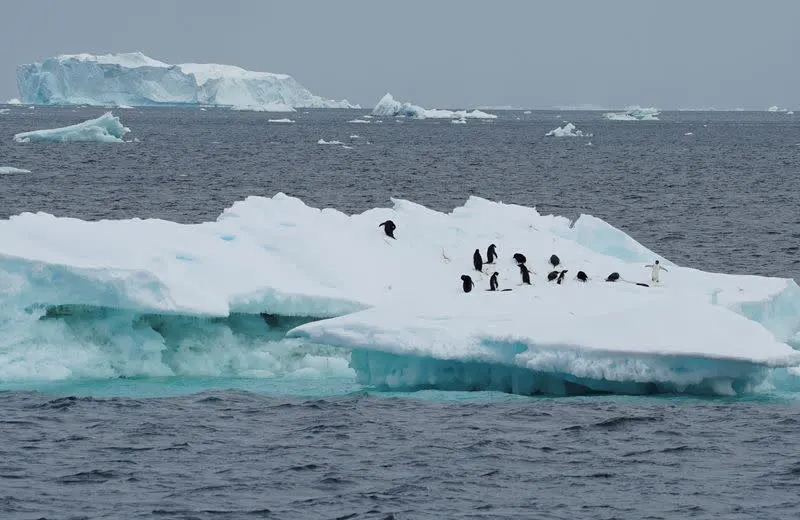Rapidly melting Antarctic ice is dramatically slowing down the flow of water through the world’s oceans, and could have a disastrous impact on global climate, the marine food chain and even the stability of ice shelves, new research has found.
The “overturning circulation” of the oceans, driven by the movement of denser water towards the sea floor, helps deliver heat, carbon, oxygen and vital nutrients around the globe.
But deep ocean water flows from the Antarctic could decline by 40% by 2050, according to a study published on Wednesday in the journal Nature.
“That’s stunning to see that happen so quickly,” said Alan Mix, a paleoclimatologist at Oregon State University and co-author on the latest Intergovern-mental Panel on Climate Change assessments, who was not involved in the study. “It appears to be kicking into gear right now. That’s headline news.”
As temperatures rise, freshwater from Antarc-tica’s melting ice enters the ocean, reducing the salinity and density of the surface water and dimin-ishing that downward flow to the sea’s bottom.
While past research has looked at what could happen to similar overturning circulation in the North Atlantic – the mechanism behind the doomsday scenario that would see Europe suffer from an Arctic blast as heat transport falters – less has been done on Antarctic bottom water circulation.—APP







